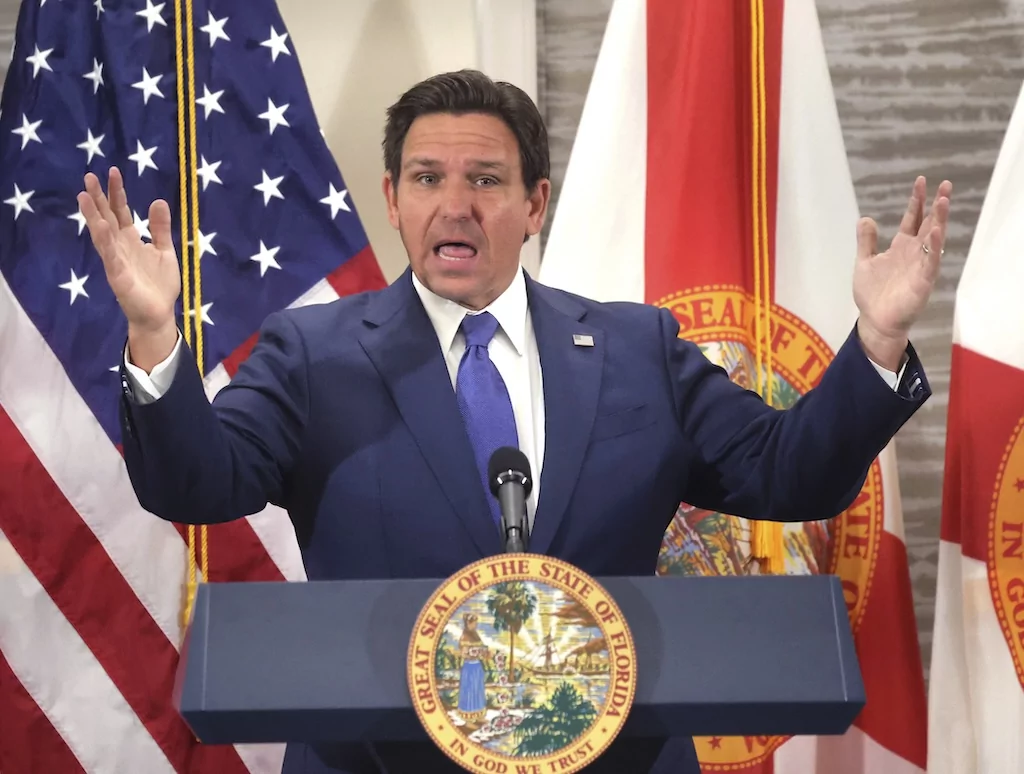


Gov. Ron DeSantis (R-FL) tried and failed to push multibillion-dollar property tax cuts through the Florida state legislature earlier this summer.
A planned ballot initiative that would almost certainly pass in a red state would take the matter to voters in November 2026, allowing them to eliminate property taxes altogether.
Recommended Stories
- Consumer sentiment drops and inflation fears rise as Trump pushes tariffs
- Inflation unexpectedly jumped to 3.3% in July in producer price index
- What has changed with Social Security in 2025?
However, Florida likely cannot afford to completely eliminate property taxes, given the reliance of county governments on the revenues they provide to fund critical public services, particularly education, Raul Gastesi, a partner and co-founder of Gastesi Lopez Mestre & Cobiella, told the Washington Examiner.
As Florida “gets $55 billion a year from property tax revenues that essentially is 60% of the education funding,” lawmakers are reluctant to embrace steep cuts, said Gastesi, a city attorney for both Miami Lakes and Doral who advises local governments on policy.
“The counties and the municipal governments get somewhere between 17% and 20% of their funding from these property tax revenues,” he added. “And so if you eliminate it, you know, a lot of us would be very, very happy with that, but then you somehow have to come up with another revenue source for those services. You know, police, fire, hospital, education — those are significant.”
Because Florida is one of only a handful of states without an income tax, eliminating another revenue stream in the form of property tax could be especially challenging, particularly given that the state legislature is examining cutting the sales tax.
DeSantis and Florida House Speaker Daniel Perez had a long and public squabble this year about when to cut the sales tax, which the speaker sought to include in the state budget, despite the governor’s hopes of first prioritizing property tax relief.
The political timing of the two issues was important because the state would likely need to hike double the sales taxes in order to pay for eliminating around $55 billion in property tax revenue, Gastesi suggested.
“You can’t cut the sales tax and then all of a sudden, now more than double it,” he said. “It’s a tough sell, especially to those that are really going to get crushed by it. … If you’ve been talking about cutting the sales tax and bragging about how you’re cutting the sales tax, now you’re going to double it — that’s a problem.”
That conflict could leave an opening for lawmakers to resolve the matter during the state’s next legislative session before it makes it to the 2026 ballot and voters eliminate the tax, allowing panicked county officials to avoid a scenario where they could lose funding for public services. State legislators worried about the political ramifications of lost property tax revenue on local district services could push Perez to find a compromise on the matter, while appeasing DeSantis to the point where he calls off the fight for a ballot initiative on the issue.

“The feeling is that they may cut the property taxes some, but they won’t eliminate them because they can’t — you’ve got to account for the $55 billion somehow,” Gastesi said. “So the elected officials and the administrators do not see this [property tax elimination] as something that will pass.”
“These representatives are elected from local districts,” he continued. “If they start cutting the property tax with a meat cleaver instead of with a scalpel, it’s going to have a direct and dramatic effect on the services provided at the very local level, and I think that’s what the legislators are concerned about, that you’re talking about cutting it without a solution. You may not have to raise $55 billion to do it, but when you cut $55 billion out of the state budget without a plan, that creates real concerns at the local level.”
There is still definite room for some level of tax cuts, Gastesi believes, pointing to “a lot of overspending” on public services such as education, arguing that the state has made progress on trending away from a dependence on property tax income, and contending that the new Florida Department of Government Efficiency is making progress toward helping a slew of counties save money and make taxpayer dollars go further.
Florida tax payers have been hit by local property taxes as many local governments have increased their budgets significantly.
— Ron DeSantis (@GovRonDeSantis) March 18, 2025
Today, I am calling on all Florida counties and municipalities to voluntarily work with our Florida DOGE team to review local spending and financial… pic.twitter.com/B18TZVOeiZ
FLORIDA DOGE TIES MISSION TO DESANTIS’ HOPES OF SLASHING PROPERTY TAXES
“We’ve got charter schools in Florida … and they actually get a better education than they do in the public schools for a much lower cost,” Gastesi said. “They have been gradually raising the exemptions with regard to the property tax. Little by little, there’ve been little quirks and things they’ve done. Firefighters get an exemption. Widows, disabled. … They’re talking about raising [the Homestead Exemption] to $500,000.”
“So, yeah, I think some DOGE cuts, some privatization of some services, there is a happy medium,” he added. “There are middle grounds, and there are middle ways to do it. Maybe not provide 100% property tax relief, but you know, being able to provide a significant amount of property tax relief.”
